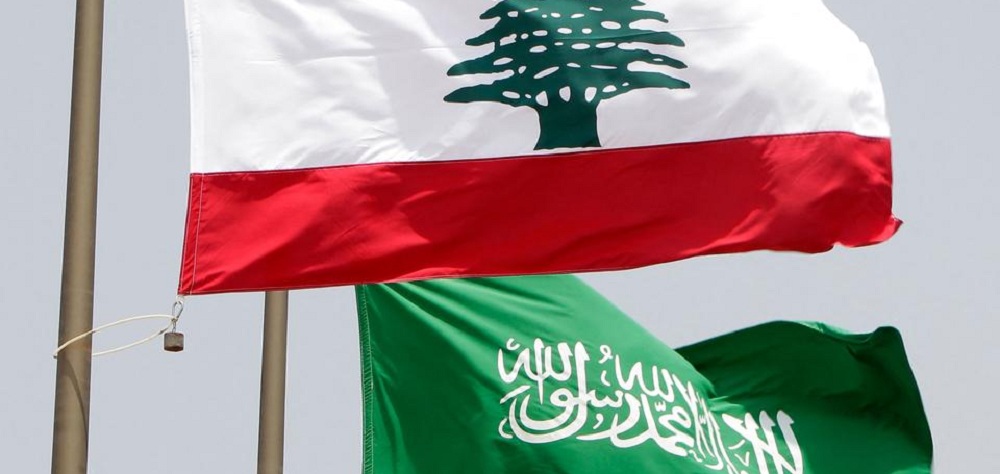AhlulBayt News Agency (ABNA): The political tension between Saudi Arabia and Lebanon that was triggered by remarks of the Lebanese Minister of Information George Kurdahi who questioned the legitimacy of the Saudi war against Yemen is now drifting to a diplomatic crisis with Riyadh recalling its ambassador from Beirut and expelling the Lebanese ambassador.
Saudi Arabia has always sought to play a role in the Lebanon developments as a stage of regional rivalry with the Iran-led Axis of Resistance and pose as an influential actor in the political scene of this small but important country.
In recent years, Riyadh-Beirut relations have been very tumultuous, with the arrest in 2017 of then-Lebanese Prime Minister Saad al-Hariri during a visit to Riyadh and forcing him to resign being a controversial example. Amid the great underway economic crisis in Lebanon, which has led to public protests and eventually a 13-month political crisis in the country, the Saudis cut off their financial aids to Beirut, compounding the situation and further destabilizing the country.
The several-year Saudi fury at Beirut has elevated to the stage of severance of diplomatic ties now. This promotes questions: What is the Saudi aim behind severing ties with Lebanon? Why did the unofficial remarks of a Lebanese minister infuriate the Arab kingdom? Since 2016, Saudi Arabia broke off diplomatic ties with Iran and Qatar in an effort to raise coalitions against its regional rivals. Does Bahrain and UAE accompaniment mean that the Saudis have the same aim against Lebanon? Will this move force the Lebanese Prime Minister Najib Mikati concede?
Saudis worried about increasing criticism against Yemen war
Undoubtedly, part of the Saudi anger with the Lebanese minister’s remarks is driven by massive regional and international pressures and criticism the Saudi are undergoing for their crimes in Yemen. The hardline decision against Lebanon comes while Kurdahi personally said that the comments reflected his, not the government’s, views. The Saudis, who failed to realize their goals in Yemen despite heavy spending on Western-provided arms and massacring Yemenis in heavy bombardment campaign, are afraid that the criticism will make its way to the official comments of the Arab world officials. If this happens, Riyadh’s claims that its war, which created one of the world’s biggest humanitarian catastrophes, has regional and international legitimacy will go invalid and strengthen the Yemeni resistance to its aggression.
There is no doubt that a considerable number of the Arab and Muslim countries are critical of Yemen war. The by-name presence of some of so-called members in the Saudi-led coalition bears witness to this reality. The degree of the Saudi reaction to the Lebanese official reveals Saudi Arabia’s thought that unserious reaction can produce a dangerous chain represented by other Arab and Muslim countries taking stance on the war in Yemen.
The expulsion of the Lebanese ambassador by Saudi Arabia, and similar moves by Bahrain, UAE, and Kuwait, are a remainder to Beirut of the collective diplomatic action against Doha in 2017 and the heavy conditions set for Qatar for reconciliation. Lebanon is grappling with a wide-ranging economic crisis, and its new cabinet is seeking financial support from the Persian Gulf monarchies to overcome the repercussions. Meanwhile, Riyadh seeks to force the government of Mikati to fire Kurdahi in flexing of muscles to Yemen war detractors.
Saudi Arabia’s burned play cards in Lebanon
For some reasons, the Saudi moves to pressure Lebanon are doomed to fail.
First, the notion that Saudi Arabia was the losing side in the diplomatic crisis with Qatar is widely recognized at regional and international levels. With Qatar defying the blockade and resisting the pressures of obviously illegitimate Saudi conditions and demands, Riyadh can no longer pose as the leader of the (Persian) Gulf Cooperation Council even as a show gesture. As the arrest of Hariri and his resignation under the Saudi pressure damaged the Lebanese national dignity and pride and caused public outrage, any retreat from Mikati government can once again arouse the ire of the public.
Second, the fact that Saudi Arabia destroyed with its own hand its trump card in Lebanon by cutting off aids to Beirut should not be ignored. So, threats with trade boycott does not seem to make a significant difference to the Lebanese economic situation, as the UAE, China, Greece, Italy, and Turkey and not Saudi Arabia are Lebanon’s main trade partners.
/129

